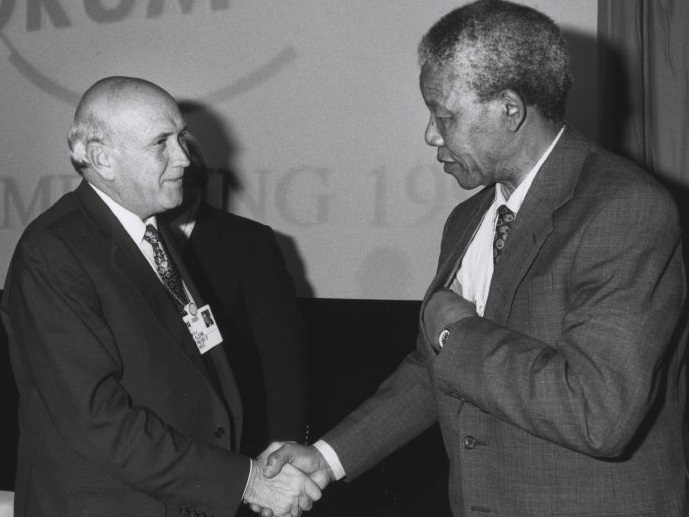Learn to Forgive: Mandela’s Leadership Legacy
This is one of our free-to-access content pieces. To gain access to all Ideas for Leaders content please Log In Here or if you are not already a Subscriber then Subscribe Here.

When we forgive we can change the future. This is one of the greatest lessons organizations can learn from transformational political leaders such as Nelson Mandela, Mahatma Gandhi and Aung Suu Kyi. Resentment, bitterness and blame make us prisoners of the past and impede progress. In the workplace, we need to accept human fallibility — and encourage people to think of mistakes as learning opportunities. The wise leader — and the wise organization — forgives and learns.
The story of Nelson Mandela is a remarkable illustration of forgiveness. In the face of fierce opposition from most members of the ANC, Mandela reached out to his former enemies to try to build a unified nation. “Forgiveness,” he told party members, “liberates the soul, it removes fear. That’s why it’s such a powerful weapon.”
Mandela’s approach stands in stark contrast to that of fellow political leader Robert Mugabe, who’s brought his country to the point of ruin. Inured to hatred, anger and bitterness, Mugabe decided to be vindictive — not only to whites but also to black compatriots who opposed him.
Trying to emulate Mandela in the workplace has many advantages. A culture of forgiveness builds loyalty and good citizenship. In organizations with a forgiveness culture, people are more likely to make an extra effort, which has important consequences for the bottom line. If people feel that they will not be forgiven for the mistakes they make, they are not going to be at their most productive; they will not take risks or be creative; they will waste energy worrying about past transgressions.
People are more likely to be open and less likely to hide mistakes and wrongdoings when they operate in a forgiving environment. Importantly, they’re also more likely to help build a coaching culture — a way of interacting that further improves performance.
But what, exactly, does forgiveness mean? It’s not a question of forgetting, condoning or excusing the hurt that’s been caused or the unacceptable behaviour of others — but of taking the sting out of memories that otherwise threaten to poison our existence. Leaders have to understand that knee-jerk reactions of righteous indignation and impulses for revenge, though natural, have to be curbed.
Why are some leaders more forgiving than others?
As well as personality traits, there are psychodynamic and developmental factors:
What’s the solution when leaders find forgiveness hard?
In some cases, psychotherapy may be necessary. Generally, however, the ‘path’ to forgiveness depends on three things: self-reflection, self-understanding and self-expression. We need to acknowledge that forgiveness is much better for our mental and physical health than carrying old wounds, and understand (empathetically) why the transgression occurred. We also need to express the emotions attached to the transgression (preferably to the people involved) — rather than suppress them. (Bypassing emotions makes for pseudo-forgiveness.)
Only when we’ve taken these steps will we be able to make the final leap — letting go. This last step is made harder by the fact that grudges give us a (false) sense of power over the transgressor.
Those who find it difficult to forgive should try to remember that forgiving is not something we do for other people: it’s something we do for ourselves. Feelings of hatred, spite, bitterness and vindictiveness are demanding taskmasters: revenge is a multi-headed monster that’s never satisfied.
We can think of willingness to forgive as a sign of spiritual and emotional maturity — and of a culture of forgiveness as a sign of a healthy organization.
Forgiving cultures mean lower staff turnover rates, lower recruitment costs and, as we’ve seen, improved productivity. They make a company a place where everyone wants their families and friends to work.
Leaders can build them by:
‘Forgiveness as a Business Tool’, INSEAD Knowledge, July 8, 2013

Ideas for Leaders is a free-to-access site. If you enjoy our content and find it valuable, please consider subscribing to our Developing Leaders Quarterly publication, this presents academic, business and consultant perspectives on leadership issues in a beautifully produced, small volume delivered to your desk four times a year.

For the less than the price of a coffee a week you can read over 650 summaries of research that cost universities over $1 billion to produce.
Use our Ideas to:
Speak to us on how else you can leverage this content to benefit your organization. info@ideasforleaders.com